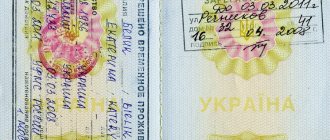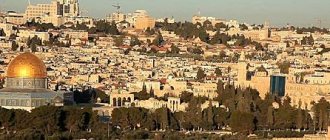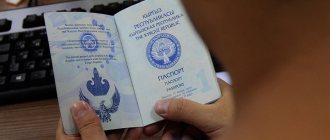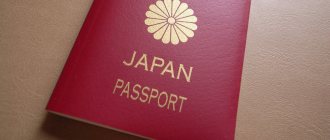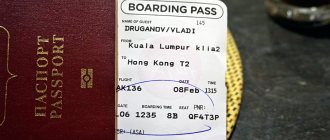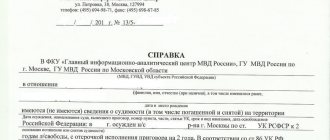How to find work in Russia for foreigners
Replenishment of personnel through migrants is becoming commonplace, although it is clear that foreign citizens, being outside their country, represent a socially unprotected group of people. Migration legislation is strictly selective in its approach to the employment of foreigners, and this feature must be taken into account before undertaking a move.
The procedure for registering foreign citizens for work requires compliance with the rules established within the state. The question concerns two sides:
- on the one hand, the participant in the process is a foreigner planning to officially find employment in a foreign country;
- on the other hand, an employer who decides to hire a foreign citizen.
Both parties need to go through the procedures without violating the law of the Russian Federation. However, not all visiting citizens like to pay taxes.
Not all employers are ready to make financial contributions to certain funds established by law. They ignore the complicated registration procedure provided for by the Labor Code of the Russian Federation. This is where illegal work comes from.
Labor activity of migrants in Russia
Every person has the right to choose where to live, study or work. Some people feel comfortable in their native country (as they say, “where you were born is where you come in handy”) and travel beyond its borders exclusively as a tourist. And some leave their homeland in search of a better life or at least a good job. However, the employment procedure for foreigners is almost always different from the procedure for local residents.
For example, in Russian legislation there are many relevant regulatory documents, a full list of which can be found in the article on the labor activity of foreign citizens in the Russian Federation.
When it comes to a foreign employee, the employer must understand that this comes with certain responsibilities and increased responsibility. Hiring a foreigner is somewhat more difficult than hiring a compatriot, but ultimately all these measures are aimed, among other things, at protecting the interests of the employer himself. In addition, if you carefully study the features of working with foreign citizens, no problems should arise.
Where foreigners are not allowed to work
The legislation of the Russian Federation provides for restrictions on the opportunities for foreign citizens to obtain work. Migrants, in accordance with Article 14 of Federal Law No. 115, are not allowed to work in the following areas:
- engage in activities in local government bodies;
- occupy command positions on merchant and military ships, on space and experimental aircraft, in civil aviation;
- you cannot work in the state security structure of the Russian Federation;
- in the Armed Forces of the Russian Federation, in combat and administrative-economic formations;
- at facilities related to the protection of state secrets, in government agencies and special forces, where data from the spectrum of state secrets is used;
- in organizations related to nuclear weapons, production areas with radiation hazardous substances;
- it is prohibited to manage organizations with an authorized capital of more than 50% of the shares of the Russian Federation;
- You cannot work in retail organizations selling medical goods, alcoholic beverages, or selling in tents or markets according to OKVED.
Foreigner status
In Russia, the stay, life and work of foreign citizens are regulated by migration laws. The legislation is based on the civil status or status of foreigners. Determination of status is related to the registration of a person, tax deductions, the amount of insurance payments to the Pension Fund of the Russian Federation, and contributions for health and social insurance.
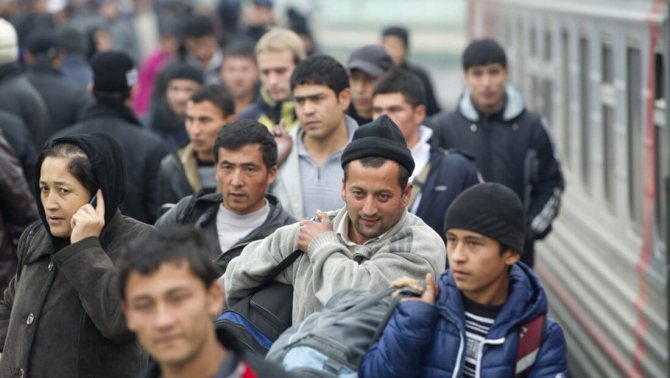
The law approves 3 statuses:
- One of them provides for permanent residence under a special document called a residence permit (RP).
- The other two correspond to temporary residence:
- followed by obtaining a residence permit;
- stay of a foreigner in a temporary regime - the basis is a visa, for citizens of the CIS - a visa-free procedure with a migration card.
Employment in a visa-free regime
A visa-free regime for relations between countries allows their residents to enter the territory without obtaining a visa. The arrangement is convenient for both the potential employee and the employer. The absence of restrictions makes it easier to conduct business relationships.
The employer is required to:
- Regular verification of the validity period of the employee’s document (residence permit).
- Inform the local branch of the Russian Ministry of Internal Affairs that, on the basis of the contract, an employment relationship has been established with a citizen of foreign origin.
Attention managers! When accepting migrants with any status (according to the Federal Law, clause 8, article 13), it is necessary to inform the Ministry of Internal Affairs.
A citizen of another country who has a temporary residence permit in Russia (a status close to a residence permit) gets a job in the Russian Federation. Every year he will have to confirm it with the migration service.
Legal employment of foreign workers with the status of temporarily staying in Russia in accordance with paragraph 1 of Art. 2 of the Law on the legal status will depend on visa relations between countries.
Employment of highly qualified specialists
Foreign specialists who have skills, experience and achievements in a certain field of activity are recognized as highly qualified. The employer determines the qualification level of a potential employee at his own peril and risk. The law does not give clear instructions on how to do this: everyone chooses the most preferable assessment method.
As already mentioned, work permits for highly qualified specialists are issued without taking into account quotas. In addition, minimum wages are established for them.
Specific figures, as well as the specifics of issuing work permits, concluding and terminating employment contracts, can be found in the article on the employment of highly qualified foreign specialists.
Patent for work
People come to the Russian Federation with the hope of finding a decent job and a comfortable life. Changes are taking place in the legal acts of the Russian Federation regarding visa-free migrants, and additions are being made.
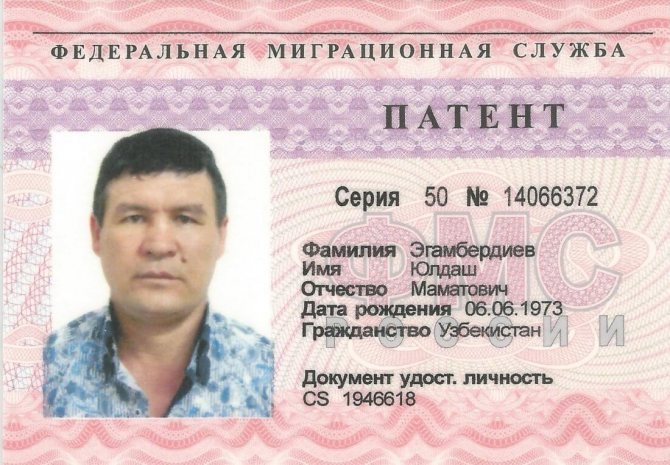
In legislation relating to migration, there is the term patent, meaning a permitting document (certificate). Having received the certificate, a foreigner simultaneously gets the opportunity to stay in the Russian Federation without a visa and work here.
No patent required:
- People who migrated to Russia with temporary registration and residence permits.
- Persons who took part in the state resettlement program on a voluntary basis.
- Citizens of Belarus and Kazakhstan.
- For displaced people.
- Employees of diplomatic missions operating in the Russian Federation.
- Representatives of foreign companies involved in the installation of technical equipment in Russia.
- For media workers working in the Russian Federation in the direction of foreign countries.
- Students engaged in labor activities during the holidays.
- Representatives of science and education who arrived at the invitation of the Russian Federation.
The state calculates the number of patents that it can implement; their number is limited. Quotas are updated annually.
A patent is issued on the basis of certificates, certificates (documentation), including:
- results of a medical examination on suitability for work;
- final indicators of tests for language knowledge, knowledge of the basics of the Russian legislative framework;
- insurance policy for an annual period;
- a check for making a monthly advance payment for personal income tax (the amount of tax corresponds to the region of employment);
- a foreign passport accompanied by a translation certified by a notary;
- handprint identification document;
- photos;
- application for a certificate.
Attention! A patent is required for visa-free foreigners with temporary residence. Persons with temporary or permanent residence status are not required to obtain a patent.
The certificate has an expiration date. It is valid for a period of time from 1 month to 1 year.
How employers deceive employees
Perhaps there is no area that is absolutely free from scammers and swindlers: there will be at least one cunning one. Enterprising people invent all sorts of schemes and pyramids in pursuit of profit and easy money. Unfortunately, relationships between employers and employees are not always built on honesty. In addition to the fact that it is quite difficult for a foreigner to find a job in Russia, some employers turn out to be, to put it mildly, unreliable.
The most common ways to deceive employees include:
- Please deposit funds. Advance payment, down payment, returnable deposit – there are a lot of names for this, but the essence is the same: pay the money, we’ll hire you. There is no need to be afraid of incomprehensible words (and believe me, scammers will not be stingy with them): if you receive such an offer, you should boldly refuse. Such actions by an employer when hiring a foreigner (as well as a Russian) are unacceptable: as soon as the scammers receive the money, they will disappear in an unknown direction.
- Incorrect drafting of an employment contract. You need to carefully read the text of the contract; it must contain clear wording, especially those related to job responsibilities. You should not agree with the text, for example, “...and carry out other instructions of the manager...”. Managers are different: by signing up for such responsibilities, you can turn into the boss’s personal assistant.
- Drawing up a “preliminary” or “draft” employment contract, which will indicate a lower salary or a different position, or both. Also, under no circumstances should you do this: there is a very high probability that later the employer will have a million reasons not to sign a new employment contract.

The procedure for employing foreigners
Legal employment is possible if you have the necessary documents:
- A foreign passport, which must be obtained before departure. You will need it when crossing the border.
- Migration card with a note about the purpose of arrival. The card is issued at the border. Border service officers will help you fill it out.
- Medical insurance for foreigners received on the day of arrival in the Russian Federation.
- Migration registration in the form of temporary registration.
- Patent for obtaining a workplace. In the future, it is planned to make regular payments for the use of the patent.
- Papers about official employment. With a patent in hand, within 2 months you need to find an employer, conclude an employment agreement with him and submit a copy to the FMS (migration service).
You need to be prepared for the costs associated with tax payments and payment of state duties. All the troubles and costs are paid off by legal work in the Russian Federation for a year without the danger of being evicted or fined.
Attention! You shouldn't skimp on safety. The money spent in the process of obtaining the necessary documentation will be returned in the course of quiet work on a legal basis.
Employment of foreign students
Foreign students receiving full-time higher education at Russian universities and wishing to find a job must apply for a permit.
Permission is not required if the student plans to work:
- during the holidays;
- in free time from study: in the same institution where he studies;
- in business companies/partnerships created on the basis of this educational institution.
By the way, in these cases, the employer does not need to obtain permission to hire foreign workers and send notifications to the Main Directorate for Migration of the Ministry of Internal Affairs of the Russian Federation.

To obtain a work permit, a student must contact the territorial unit of the Main Directorate for Migration of the Ministry of Internal Affairs of the Russian Federation with a corresponding application. The following documents are attached to it:
- Passport or equivalent document.
- Migration card.
- A certificate confirming full-time study at a Russian university.
- A certificate confirming the absence of dangerous diseases (drug addiction, syphilis, leprosy, tuberculosis, HIV).
- Employment contract.
- Receipt for payment of state duty.
Important: the absence of a receipt cannot be a reason for refusal to accept documents. The main thing is that the fee has been paid; migration officials can independently verify the receipt of payment through a special information system.
A work permit is issued for the duration of the employment/civil contract and can be renewed several times, but each time for no more than a year. However, it should be taken into account that the validity period of a work permit cannot exceed the period of study.
List of documentation
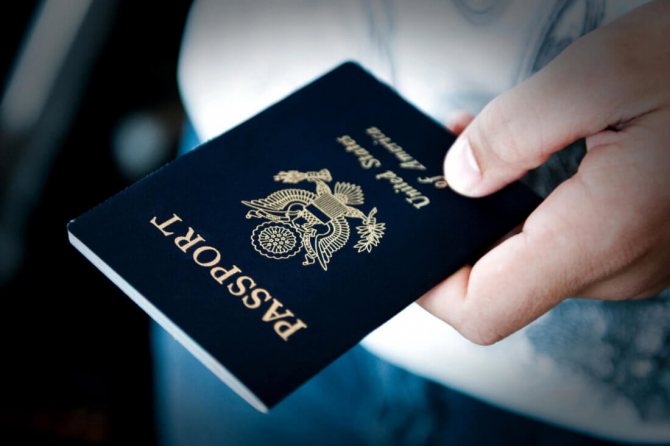
To employ a foreigner, the following documents will be required:
- application in 2 copies;
- passport of a standard recognized in the Russian Federation;
- migration card indicating the purpose of arrival “work”;
- medical policy or agreement with a medical organization on paid services for the duration of work;
- a certificate issued by a medical institution confirming that the citizen does not have drug addiction, HIV infection or other dangerous diseases;
- certificate of training in Russian language courses, completion of the fundamentals of jurisprudence and history of the Russian state;
- temporary registration coupon;
- a patent recording data on the presence of a profession or types of active activity.
What diplomas are recognized in the Russian Federation
Diplomas issued in foreign countries are recognized in the Russian Federation on the basis of international treaties. Also, the document will be recognized in the Russian Federation if it was received at an educational organization included in a special list.
It also happens that a document on education or qualifications cannot be recognized as complying with the legislation of the Russian Federation in the above ways. In this case, the foreign citizen has the right to apply for recognition to the Federal Service for Supervision in Education and Science.
Medical policy
A Russian, as a rule, has a compulsory health insurance policy, which guarantees the provision of medical care (including emergency care). In this regard, it is more difficult for a foreigner, because no one will give him a compulsory medical insurance policy on the territory of the Russian Federation, and insurance issued in another country (of course, if there is one) will not be valid in Russia. The list of documents for employment includes a voluntary health insurance policy (VHI), which must be issued by a foreign citizen.
Other documents
All of the above is an almost complete list of what a foreigner needs to work. But still, in some cases, employers expand the list, supplementing it with new documents. These may include, for example, various kinds of portfolios, examples of work or publications, etc. Most often, this is dictated by the need to assess the candidate’s qualification level and understand how well he meets the employer’s expectations.
Legalization of documents
As required by law, all documents drawn up in a foreign language must be translated into Russian and notarized. Exceptions to this rule can only be made if there is a corresponding international treaty.
Foreign student
An educational institution can act as a party accepting foreigners for study. You can obtain permission from the Federal MP of the Russian Federation. The purpose of arrival is indicated in the application. The following must be presented to the relevant departments related to the movement of foreigners in Russia:
- Application.
- A copy of the foreigner's identity card.
- Guarantee to ensure material, medical, housing conditions.
- An invited citizen, a national of another state for the duration of his residence in the Russian Federation.
The student is registered with the Federal Migration Service based on the notification he received from the inviting party. The university administration will inform the educational authorities about his arrival in the next 3 days.

In case of unauthorized departure of a student from an educational institution, the university is obliged to notify:
- apparatus in charge of education;
- migration structures;
- security authorities.
The educational institution is obliged to renew the visa. If an educational institution violates the rules and obligations assumed, then liability will arise according to the law in the form of fines (up to half a million rubles).
For foreign students, a place in the dormitory is provided at the rate of 6 sq.m per person. Training is financed from the state budget of the Russian Federation. Students are paid a stipend.
The country has approved training quotas on a budget basis (no more than 10,000 people annually).
Important! The cost of utilities, household services, and accommodation should be no more than 5% of the scholarship amount.
What taxes do foreign workers pay?
The stay of foreigners in Russia is regulated not only by migration, labor, but also by tax legislation. The first establishes the rules for the presence of foreign guests on the territory of our country, the second determines the procedure for the relationship between the employee and the employer, but the third regulates the procedure for settlements with the state. It just so happens that tax revenues make up a fairly impressive part of the budget.
To find out what role foreigners play in this, we recommend reading how taxes are levied on foreigners in the Russian Federation.
The most common question relates to how migrants pay income tax. With Russians, everything is simple: every month a tax amount is withheld from an employee’s salary. What about foreigners? What is the procedure for calculating and paying tax? What are the rates and terms for transferring to the budget?
Read in more detail how personal income tax is withheld from foreign workers.
Quotas
Immigration policy applies quotas, that is, a projected acceptable rate or share of participation in the labor market of foreign labor. Employers often resort to using foreign labor. This happens for various reasons:
- For the cost of services.
- By skill level.
The hiring of workers from abroad is subject to strict quotas.
In practice, several types are used:
- Employers who hire foreign specialists into their workforce receive a quota;
- quota for temporary registration gives advantages in getting a job without special permits;
- the issuance of jobs is normalized in order to protect the labor market within the country;
- there are quotas for issuing invitations to obtain a visa;
- There are quotas for students who want to have a Russian diploma and study on a budgetary basis.
Quotas for foreign employees
No matter how ugly it may sound, labor migrants are, first of all, competitors for our compatriots. It happens that preference is given to a foreigner rather than a Russian. It is difficult to say why this happens, since employers prefer not to disclose the reasons for refusal to applicants.
In order to control the employment of foreign citizens, a measure such as quotas may be applied. Every year, the Government of the Russian Federation determines the need to attract foreign labor. After this, the quota (the number of work permits) and its distribution for the next year can be approved.
For example, for 2021, the total number of work permits and their distribution by professional qualification groups looked like this:
Professional qualification groupQuota
| Heads of institutions/organizations/enterprises and their structural divisions (services) | 7007 |
| Specialists in natural sciences and engineering | 3101 |
| Mid-level specialists in physical and engineering fields of activity | 2750 |
| Middle staff in the field of financial, economic, administrative and social activities | 5349 |
| Workers in the field of personal services and protection of citizens and property | 3938 |
| Salespeople, product demonstrators, models and clothing demonstrators | 1046 |
| Qualified workers in commercial agricultural production, forestry and hunting, fish farming and fisheries with a market orientation | 7912 |
| Workers engaged in mining, capital mining and construction, installation and repair work | 78560 |
| Workers in the metalworking and engineering industries | 10851 |
| Other professions of skilled workers in large and small industrial enterprises | 19760 |
| Operators, machine operators and machinists of industrial installations | 3263 |
| Operators, operators, machinists and fitters of stationary equipment | 13398 |
| Drivers and operators of mobile equipment | 4862 |
| Unskilled workers common to all sectors of the economy | 6064 |
| Other professional qualification groups | 9182 |
| Total | 177043 |
The general quota is distributed among the constituent entities of the Russian Federation, and then among professional qualification groups within a specific region. The number of permits that foreign workers can obtain depends on many factors: the socio-economic climate of the region, the need to attract foreign specialists, the presence of enterprises in a certain industry.
However, a foreign citizen is not interested in these reasons; he is much more concerned about the result - the quota. Regional quotas and their distribution were approved by Order of the Ministry of Labor and Social Protection of the Russian Federation dated December 13, 2021 No. 728n.
For which industries are quotas not established?
Based on the above, we can conclude that there is no industry where there would be no quotas. They have been approved for almost all areas: industry, agriculture, economics - everything is subject to planning. Moreover, in the approved distribution there is a clause “other professional qualification groups”. And if the list does not contain the exact name of the profession, then almost anything can be included under this item.
There are still categories of citizens who are not subject to quota requirements. These include:
- full-time students receiving education at universities of the Russian Federation;
- foreigners coming to work in branches/subsidiaries/representative offices of companies registered in WTO member countries;
- highly qualified specialists.
